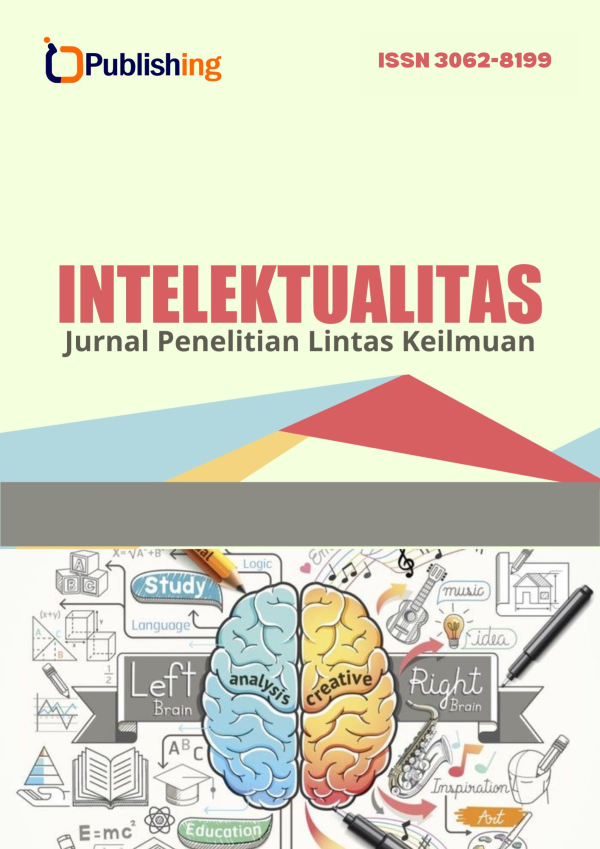Hermeneutic Features of Management Activities
DOI:
https://doi.org/10.47134/intelektualitas.v2i1.3959Keywords:
Relational Management, Ethical Leadership, Social Philosophy, Corporate Social Responsibility (CSR), Organizational Culture, Stakeholder Engagement, Power Dynamics, Inclusivity, Communication, Sustainable DevelopmentAbstract
This article explores how philosophical principles such as ethics, power dynamics, and social responsibility intersect with management practices. By examining relational leadership, stakeholder engagement, and contemporary theories of corporate social responsibility (CSR), this study emphasizes that effective management is not only about enhancing efficiency and profitability but also about fostering meaningful relationships, promoting inclusivity, and ensuring sustainable development. The research discusses how social structures, communication forms, and ethical values shape managerial decisions, ultimately influencing organizational success and societal well-being. This approach allows for a deeper understanding of management as a social practice that transcends traditional economic and administrative perspectives. The article highlights the intersection of social philosophy and management, emphasizing the role of philosophical principles in informing management practices. It focuses on human relationships, ethical considerations, and the development of social capital within organizations. Through comprehensive literature review and theoretical analysis, the study underscores the importance of integrating philosophical values into management to enhance organizational efficiency and employee well-being. The socio-philosophical aspects of management emphasize the complex relationships between individuals, organizations, and society. A relational approach to management stresses the significance of social interactions, ethical reasoning, and cultural contexts in decision-making and organizational structures.
References
Afshari, L. (2024). How to lead responsibly toward enhanced knowledge sharing behavior and performance: implications for human resource management. Personnel Review, 53(4), 944-964, ISSN 0048-3486, https://doi.org/10.1108/PR-12-2022-0869
Anand, A. (2023). The role of ethics in business-to-business marketing: An exploratory review and research agenda. Industrial Marketing Management, 115, 421-438, ISSN 0019-8501, https://doi.org/10.1016/j.indmarman.2023.10.013
Anderson, D.W. (2024). The essence of leadership: Maintaining emotional independence in situations requiring change. The Essence of Leadership: Maintaining Emotional Independence in Situations Requiring Change, 1-267, https://doi.org/10.4324/9781003463993
Aristotle. (1985). Nicomachean Ethics.
Brown, M. E., & Treviño, L. K. (2006). Ethical leadership: A review and future directions. The Leadership Quarterly, 17(6), 595–616.
Cascio, W. F., & Montealegre, R. (2016). How technology is changing work and organizations. Annual Review of Organizational Psychology and Organizational Behavior, 3(1), 349–375.
Crenshaw, K. (1989). Demarginalizing the intersection of race and sex: A black feminist critique of antidiscrimination doctrine. University of Chicago Legal Forum, 1989(1), 139–167.
Esvanti, M., Nafisah, A. F., & Winarno, A. (2023). Integration of Philosophical Values in Human Relations Management: Systematic Literature Review. Economics and Business Journal (ECBIS). Retrieved from https://ecbis.net/index.php/go/article/view/162
Foucault, M. (1975). Discipline and Punish: The Birth of the Prison.
Freeman, R. E. (1984). Strategic Management: A Stakeholder Approach.
Habermas, J. (1984). The Theory of Communicative Action.
Jerab, D. (2023). The Philosophical Foundations of Management Thought. Retrieved from https://www.academia.edu/125537376/The_philosophical_foundations_of_management_thought
Liu, S. (2024). Shaping supply chain ethical leadership via green intellectual capital: The mediating role of ambidextrous environmental strategy. Business Strategy and the Environment, 33(7), 6869-6888, ISSN 0964-4733, https://doi.org/10.1002/bse.3847
Mintzberg, H. (1979). The Structuring of Organizations.
Nishii, L. H. (2013). The benefits of climate for inclusion for gender-diverse groups. Academy of Management Journal, 56(6), 1754–1774.
Pan, W.L. (2023). Enhancing bladder management for intrapartum/ postpartum women at a maternity hospital in Taiwan: A best practice implementation project. JBI Evidence Implementation, 21(3), 197-207, ISSN 2691-3321, https://doi.org/10.1097/XEB.0000000000000357
Putnam, R. D. (2000). Bowling Alone: The Collapse and Revival of American Community.
Samnani, A.-K. (2023). A Relational Approach to HRM and Cultivating Social Capital: Developing an Integrative Theory. Academy of Management Proceedings. Retrieved from https://journals.aom.org/doi/abs/10.5465/AMPROC.2023.18637abstract
Schein, E. H. (1985). Organizational Culture and Leadership.
Sobirovich, T. B. (2023). Basic Criteria for Building the Third Renaissance in Uzbekistan. Asian Journal of Applied Science and Technology (AJAST), 7(1), 149-157.
Tsai, C.Y. (2022). Human-robot collaboration: A multilevel and integrated leadership framework. Leadership Quarterly, 33(1), ISSN 1048-9843, https://doi.org/10.1016/j.leaqua.2021.101594
Wang, J. (2023). Research on the Impact of Green Innovation Network Embeddedness on Corporate Environmental Responsibility. International Journal of Environmental Research and Public Health, 20(4), ISSN 1661-7827, https://doi.org/10.3390/ijerph20043433
Wang, R.H. (2023). Proactive and Ongoing Analysis and Management of Ethical Concerns in the Development, Evaluation, and Implementation of Smart Homes for Older Adults With Frailty. JMIR Aging, 6, ISSN 2561-7605, https://doi.org/10.2196/41322
Weber, M. (1947). The Theory of Social and Economic Organization.
Xu, J. (2023). The ethics of care and wellbeing in project business: from instrumentality to relationality. International Journal of Project Management, 41(1), ISSN 0263-7863, https://doi.org/10.1016/j.ijproman.2022.11.004
Zuboff, S. (2019). The Age of Surveillance Capitalism.











